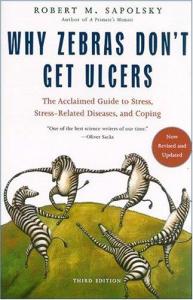How To Boost Growth Hormone By +600%

Berzinator Fitness Designs: Growth Hormone (GH) has got to be one of the most kick ass hormones when it comes to fat loss and muscle growth.
Here’s just a short list of the benefits: Strengthens bone, increases muscle size, boosts protein synthesis, burns fat, increases metabolism and stimulates the immune system.
It even makes you look younger and prevents aging.
As you can see, boosting GH can have some sweet benefits and can make a huge difference – one that you definitely don’t want to be missing out on.
Growth Hormone Basics
Somatotropin, the fancy term for GH, is controlled by two hormones released from the hypothalamus, called somatocrinin or Growth-hormone-releasing hormone (GHRH), and somatostatin or Growth-hormone-inhibiting hormone (GHIH).
Take a wild guess what each one does.
If you want to boost GH, you need to boost GHRH and suppress GHIH, both of which we’ll get into below.
GH is a peptide hormone (made of protein), and its main role in the body is growth and cell reproduction (through stimulating and working with Insulin-Like Growth Factor 1, or IGF-1).
That makes it great for muscle growth or maintenance, as well as aiding repair of injuries. In fact, this is the main reason athletes use HGH to boost performance – it speeds up recovery from injuries.
But in addition to that, GH is a part of the “stress response” (which we’ll talk about later on), and helps to release glucose and fatty acids from storage and into your bloodstream to be used for energy.
This is one reason why it’s also great for fat loss. Not only does it help burn fat and sugar in your body, but it does so while preserving muscle.
The unique thing about GH is how it’s released – in a “pulsatile” manner, which basically just means that your body will release it in bursts.
Throughout a 24-hour period, there will be times when your body is pouring out GH at very high doses, and then other times when it drops and almost none is released.
This is important when looking at the research, since any measured GH levels needs to be viewed within the context of this “peaks and valleys” pattern. Increasing GH is a matter of making the “peaks” larger and longer lasting, while minimizing the “valleys”.
Maximizing Growth-Hormone-Releasing Hormone
As I said before, increasing GH is a matter of boosting GHRH and suppressing GHIH.
There are several things that boost GHRH, including the hormone Grehlin, the sex hormones, deep sleep, hypoglycemia, vitamin B3, hard exercise, and fasting.
Of these factors, there are a few that are the “big players” and will have the biggest effect on your GH production.
Sleep
One of the most potent stimulators of GH is sleep. Not just any sleep, but *deep* sleep, referred to as Stages 3 and 4 of Non-REM sleep.
Remember how I said that GH is released in pulses?
Well during these phases of sleep, your body releases the biggest pulses, especially during the first deep sleep cycle of a night’s rest. In fact, around half of your overall GH release comes during these stages.
So what happens when you’re sleep deprived?
Your brain prioritizes REM sleep, making a higher percentage of your Zzz’s REM time, with less deep sleep time.
Deep sleep = GH, so less deep sleep = less GH = Not good (in strict scientific terms).
If you’ve ever heard of polyphasic sleep, or the Uberman sleep cycle, you’ll be familiar with this concept.
The idea behind this way of sleeping is to train your body to get enough REM sleep through evenly spaced 20-30 minute naps, totaling 2 hours of sleep per day.
Sound crazy? Well it kind of is, but you can make it work and still function with only 2 hours of sleep.
But just because you *can* do this, doesn’t mean you *should*. It’s terrible for deep sleep and GH production. REM takes charge and pushes deep sleep out of the way, wrecking your GH levels in the process.
So how can you use sleep to increase GHRH and GH? Simple: SLEEP MORE.
Typically 7.5 to 9 hours is ideal, with 6 representing what I consider a *miserable* minimum (I love me some sleep).
Make it good sleep in a dark location and turn your phone off or on airplane mode (the signal can disrupt deep sleep).
Taking melatonin enhances your sleep as well and has been shown to increase GH by somewhere up around 150%.
Pretty sweet stuff.
Intermittent Fasting
This is by far the most potent way of increasing GH, short of sticking yourself with a needle. Here’s a quick overview:
“Intermittent fasting is a style of eating where individuals “fast” (don’t eat) for a short time (10-36 hours) and then follow it with a window of time where food is consumed. The same amount of food the individual would normally eat is typically consumed, only the timing of the meals is altered.”
The most popular forms of this are Martin Berkhan’s “Lean Gains” protocol (16 hours fasting, 8 hours eating, done daily – which I’ve done for about 6 years now) and Brad Pilon’s “Eat Stop Eat” program (24 hour fast done 1-2 times per week).
“In addition to a host of other amazing benefits, short-term fasting has been shown to increase GH levels by 600% (!!?!1!!)”
No joke. 600%.
That’s insane. That’s a ridiculously high increase for something as easy as changing your pattern of eating.
Fasting does this by increasing the number of spikes in GH, while maintaining the magnitude of the big pulse you get during deep sleep.
So instead of one big pulse at night, IF gives you 3 or more big spikes over a 24 hour period.
If you can’t already tell, that’s pretty incredible.
In Brad Pilon’s book “Eat, Stop, Eat”, he states that “if you could make a pill with all these claims, you would easily have a 100 million dollar a year product. You’d probably also win a Nobel Prize. These claims are that impressive.”
I cannot agree more. A 600% increase in GH is damn impressive.
Intense Exercise
While all exercise increases GH, certain types are more powerful than others.
In particular, any high intensity exercise will provide a significant boost to GH levels.
This means stuff like weightlifting, high intensity interval training, metabolic circuits, and conditioning drills all work great. It’s no wonder these types of exercise are usually prescribed for fat loss.
Since all of these types of exercise are great for building an incredible physique, you should already be doing most of these anyway.
But there’s a way to get an even bigger boost in GH from exercise: Do it fasted.
This combines the GH releasing potential of both fasting and exercise, creating a synergistic effect: 2+2=8.
It’s like combining a striped candy and a packaged candy in Candy Crush. The effect is bigger than both of them alone (Time wasting update: I got bored with Candy Crush and moved on to Time Surfer. Thank you free Starbucks download of the week).
Before weightlifting workouts, you should have some whey protein (20-30 grams) or BCAAs (5-10 grams) *at minimum*. Pre-workout protein is crucial to drive the adaptations from weightlifting.
Whether or not you should have a full meal before weightlifting workouts will depend on your goals, style of training, body fat percentage, and individual factors.
However, I do recommend sprints and other high intensity cardio be done completely fasted.
Since these are geared towards fat loss and metabolic adaptations rather than strength and muscle gain/maintenance, pre-workout protein is less crucial. Completely fasting gives you extra benefit on the GH front.
Plus there’s evidence to suggest that fasted sprinting mimics leptin, which adds another awesome benefit.
Minimizing Growth-Hormone-Inhibiting Hormone
There are also a couple of things that increase GHIH, which means less GH. These are things you want to try to avoid.
The list includes hyperglycemia (high blood sugar), glucocorticoids (stress hormones), DHT, GH itself (through negative feedback), and of course, high body fat. Just another reason to keep yourself trim and lean.
Again, there are a few big factors here that should be avoided in your quest to maximizing GH output.
Long Term Stress
We all know that stress is bad for us.
Besides sucking from a mental aspect, causing many long term diseases, wrecking your hormonal profile, and making you an annoying person to be around, it’s especially bad for GH levels.
Whenever you get stressed, your body turns on the stress response – which consists of a cocktail of hormones, including adrenaline, noradrenaline, glucocorticoids (like cortisol), glucagon, and some others.
But remember, I said earlier that GH was a part of the stress response.
So wouldn’t you *want* to get stressed?
In the short-term, yes. Stress is good for you. Your stress response makes you alert and focused, which is awesome if you’re a caveman running from a lion, or even just in the gym doing a tough workout session.
But when that short-term stress gets drawn out into long-term stress, especially without physical activity to go along with it, that’s when you run into trouble.
Long term stress causes a ton of bad things to happen, one of which is actually a *decrease* in GH.
And why does stress decrease GH?
Because glucocorticoids (stress hormones like adrenaline, noradrenaline, etc.) increase the sensitivity of GHIH neurons in the hypothalamus, making them much more likely to get stimulated. Since they’re more easily stimulated, more GHIH is released and GH production gets shut down.
So if you want to increase GH levels, the solution is obvious: Stop stressing out.

HOLY SHIT ARE YOU STRESSING OUT?!? WHAT ARE YOU DOING?!? STOP STRESSING OUT!!!
I know, I know, easier said than done. But there are a few tricks that can help.
The first is to get better at planning. If you’re prepared for what the day or week has in store, you’ll have fewer stressful freak outs and last minute panic attacks. You’ll also feel less overwhelmed.
Take some time at the end of the previous weekend or the beginning of the week to look at what you have coming up and plan out your days. Hell, you should be doing this anyway to schedule your workouts.
Another trick is meditation. Studies have shown that meditating actually changes the way your brain reacts to stress and helps you cope more easily.
Just sit with your eyes closed for 5-20 minutes a day and focus on breathing. Whenever your thoughts start to drift, simply observe them and return to breathing.
A lot of highly driven people get frustrated when their thoughts drift, but I would recommend this piece of advice: Every time you catch yourself thinking about something, it’s an opportunity for you to practice returning to your breath. Since that’s where the real benefit lies, you’ll get a ton out of practicing it.
Note: Meditation doesn’t have to have any religious ties and it’s not just “new age hippy crap”. It’s actually scientifically validated. Try it out and keep an open mind – you might be surprised by what you find.If you want an app that will guide you through meditation, check out Headspace here/a>.
Finally, make time to do relaxing things like read or hang out with family/friends, etc. We all probably work a little too much and you need to know when to pull back and take it easy.
*If you want to read more on stress, I highly recommend “Why Zebras Don’t Get Ulcers” by Robert Sapolsky. Seriously one of the most informative books I’ve ever read.
Amazing book if you want to learn the science behind stress.
Don’t Get Fat
I shouldn’t even have to tell you this, but getting fat sucks.
From a hormonal standpoint it’s awful. Reduced insulin sensitivity, leptin resistance, decreased GH. No bueno.
So why does body fat reduce GH?
Body fat, like anything in body, has a negative feedback loop. All that means is that the fatter you get, the more your body defends against further fat gain.
Wait a second… Defends against fat gain?
I know what you’re thinking: That sounds absurd. Doesn’t your body want you to get fat? Isn’t it always fighting you in your quest to get lean?
But your body doesn’t really want you to “get fat” either. There’s proof of this through blood work of an overweight person.
Their resting blood sugar goes up, their insulin sensitivity nosedives, and their lipid profile increases and worsens.
This is evidence of your body defending against fat gain because your body doesn’t want to store the excessive incoming nutrients. Your cells actually get less sensitive to incoming Calories. And since they’re already packed full, they release their carbs and fats back into the blood stream more easily.
As you gain fat, your blood profile worsens because there’s nowhere else for the carbs and fats to go.
Now, if you remember above, hyperglycemia (high blood sugar) blunts GH release.
Bingo. We have our culprit.
As a fatter person, your blood sugar will naturally be higher since your cells have a harder time taking in carbs, leaving them to roam around your bloodstream and suppress GH production.
Bottom line: You can’t eat a thousand Oreos a day and still expect to have high GH.
Stay lean and keep your GH.
Boosting Growth Hormone
If you take the necessary steps to increase GHRH and reduce GHIH, you’ll get a significant boost in GH.
To increase GHRH:
- Sleep 7.5-9 hours per night, with 6 hours as a bare minimum
- Do short-term fasting by using the 16/8 “Leangains” schedule or the 24-hour “Eat Stop Eat” fast once or twice a week.
- Do high intensity exercise regularly
- Depending on your goals and the type of exercise, combine fasting and exercise to get a synergistic boost in GH
To minimize GHIH:
- Minimize long-term stress through better planning, meditation, relaxing, and/or anything else that eliminates long-term stress
- Stay relatively lean and don’t let yourself get fat (maximum 15-18% for guys, 24-27% for girls)
These changes are all easy to start today, and will have a significant effect on your GH levels.
I don’t know about you, but faster fat loss, more muscle gain, improved recovery, stronger bones, enhanced immune system, and reduced aging all sound like amazing benefits, and GH delivers.